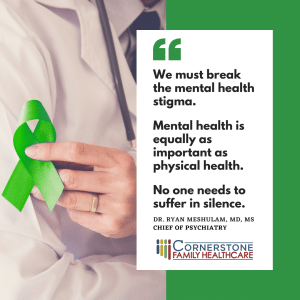Thanks to scientific research, addiction treatment has evolved to be more effective in the last few decades. Treatment involves urgent care, medication, and counseling, favoring a holistic approach. Getting the right addiction treatment early can be a lifeline for so many people. Here are some top modalities for treating patients with addiction.
1. Medication-Assisted Treatment (MAT) for a Whole Patient Approach
Medication-Assisted Treatment (MAT) is the use of medication alongside counseling and behavioral therapy. It is a whole-patient approach involving both psychology and physiology. It is one of the most cost-effective modalities offered by organizations that provide healthcare for uninsured people.
MAT can address addiction to opioids such as heroin and some pain medication. The prescribed medication helps to readjust the brain chemistry as the patient works through recovery. MAT has been proven to be effective for addressing addiction and sustaining sobriety through recovery.
2. Motivational Interviewing Versus Confrontational Speeches
Confrontational speeches cause distress, confusion, and may lower the patient’s self-esteem during treatment. As such, researchers developed motivational interviewing which favors collaboration, showing affection, and personalized treatment.
Motivational interviewing encourages the patient to commit to the process. The counselor works to help them meet their goals, rather than force them into that position. MI can be structured as an outpatient session, making it a low-cost healthcare addiction treatment method.
3. Support and Encouragement Through Group Therapy
Group therapy allows participants to relate to peers as they discuss their unique experiences with addiction. Individuals struggling with drug dependency tend to isolate themselves from their family and friends. Group sessions can address isolation and their need for social interaction.
Research suggests that group therapy is as effective as individual counseling in dealing with addiction. It is also more cost-effective and may be a better option for uninsured people.
4. Individual Addiction Therapy
Individual counseling sessions offer a personalized approach to addiction treatment. It is ideal for clients who have complex needs, such as having an addiction problem in combination with a mental health condition.
One disadvantage with individual therapy is that the treatment can be expensive. However, it offers a more comprehensive level of analysis and can match the pace of the patient.
5. Addressing Destructive thoughts with Cognitive Behavioral Therapy (CBT)
Cognitive Behavioral Therapy (CBT) aims to get to the root of the destructive thoughts causing addiction. CBT helps see connections between their feelings, thoughts, and actions. By doing so, CBT raises awareness and encourages recovering addicts to take action.
Choose the Best Modality for You
Patients who need addiction treatment may undergo one of the modalities depending on a family doctor’s evaluation of their needs. For cost-effective options, talk to a Medicaid doctor to refer you to mental healthcare for uninsured people.




